When should you choose forged or cast valves?
When should you choose forged or cast valves? The choice between forged and cast valves is crucial in ensuring the smooth operation and longevity of any industrial system. Both forged and cast valves have their own distinct advantages and disadvantages, making it essential to understand their characteristics and applications before making a decision.
Forged valves are manufactured by shaping heated metal into the required shape through the application of extreme pressure. This process results in a stronger and denser metal structure, which makes forged valves highly resistant to corrosion, pressure, and temperature fluctuations. Forged valves are commonly used in high-pressure and high-temperature applications, such as oil refineries, chemical plants, and power generation plants. Their superior strength and durability make them well-suited for handling aggressive fluids and gases.
On the other hand, cast valves are produced by pouring molten metal into a mold, allowing it to cool and solidify. This casting process allows for the creation of more complex shapes and designs compared to forging. Cast valves are generally more cost-effective and have a shorter production lead time. They are suitable for low-pressure and low-temperature applications in industries such as water treatment, HVAC, and general plumbing systems.
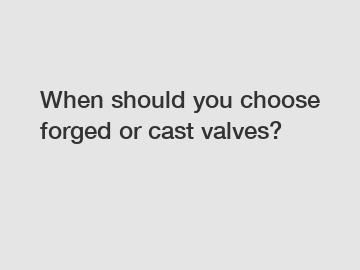
The decision to choose between forged and cast valves depends on various factors, including the operating conditions, fluid characteristics, system requirements, and budget. For applications where safety and reliability are of utmost importance, such as in critical infrastructure or hazardous environments, forged valves are the preferred choice. Their exceptional mechanical properties, including high ductility, fatigue resistance, and impact strength, ensure long-term performance and minimize the risk of valve failure.
Additional resources:Unlocking the Secrets of NPK Bulk Blended Fertilizer: Your Ultimate Guide
Revolutionizing Urban Water Management: Is Pipe Infrastructure the Key to Sustainable Cities?
Top Equipment for Successful Lost Foam Casting
Ultimate Guide to Custom Patio Sectional Covers
Are Continuous Syringes F-Type Worth the Investment?
Are custom made garden furniture covers worth the investment?
What is the concept of hydroponic fodder?
However, if the application has minimal requirements for pressure and temperature, and cost-effectiveness is a crucial consideration, cast valves can offer a viable solution. Their versatility in design, ability to produce intricate shapes, and lower production costs make them suitable for a wide range of applications.
It should be noted that the choice between forged and cast valves is not always black and white. In certain cases, a combination of both forged and cast valves may be used within the same system, depending on the specific requirements of different sections or components.
In conclusion, the decision to choose between forged or cast valves is a critical one that requires careful consideration of the operating conditions, system requirements, and budget constraints. While forged valves are known for their superior strength and durability in demanding applications, cast valves offer cost-effectiveness and versatility in design. Ultimately, selecting the right valves will ensure the smooth functioning and reliability of industrial systems, providing long-term benefits and minimizing maintenance costs.
For more information, please visit slab gate valve made in china, china slab gate valve suppliers, Side Entry Trunnion Mounted Ball Valve for Sale.
Additional resources:What gauge needles do vets use?
When should you cover outdoor furniture?
Can you make a greenhouse out of a shipping container?
Discover the Magic of Mushroom Farm Containers
Which brands offer the best F-Type syringes?
Hydroponic Greenhouses: A Profitable Solution for Commercial Growers
Discover the Best Deals on Liquid Nitrogen Containers!
Related Articles

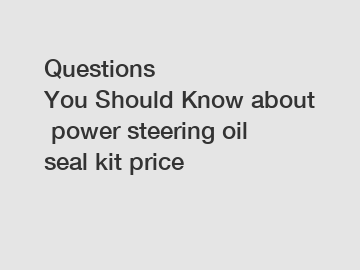
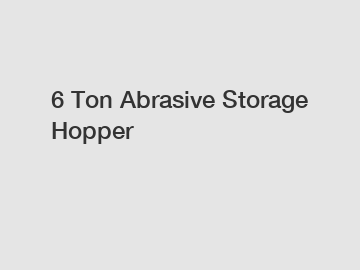
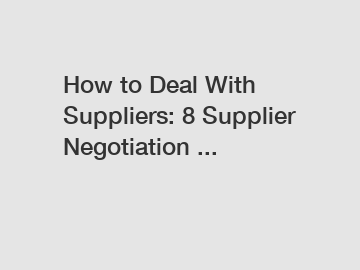
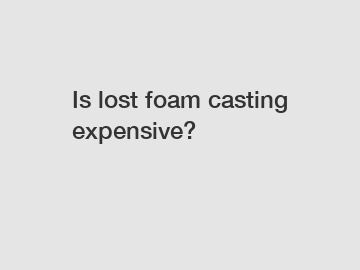


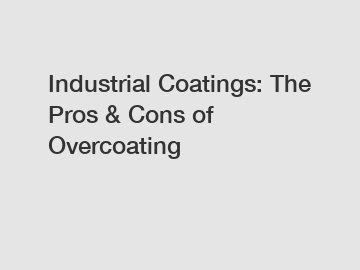

Comments
0